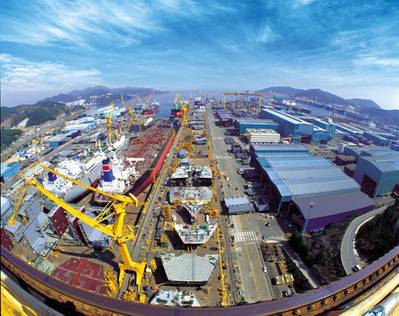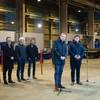South Korea is getting serious about tackling its "zombie company" problem and will set up its first restructuring firm backed by the government and banks in November, spooked by some huge corporate losses and a darkening economic outlook.
Korea Development Bank (KDB) will also seek to sell some of the 118 non-financial firms it controls, the government said last week - a move seen as part of its new resolve to deal with the issue. About 20 companies controlled by the state-run bank are seen as struggling.
Zombie companies, often defined as firms which require constant bailouts or which don't make sufficient profit to pay down the principal on their debt, have long plagued South Korea's corporate landscape.
Large wayward borrowers have frequently survived, with the government and state banks fearful of the job losses likely to accompany a big bankruptcy. But with domestic indicators taking a turn for the worse, China's growth slowing and U.S. interest hikes looming, key policymakers say failure to take action means Asia's fourth-largest economy risks damage to its industrial prowess.
"It's time to respond pre-emptively," said Yim Jong-yong, chairman of South Korea's Financial Services Commission, the regulator behind the new restructuring body and KDB's plans to offload companies.
"We need to help usher in a virtuous circle by making money flow into productive areas and away from non-productive sectors by removing these festering sores," he told Reuters in an interview.
Daewoo Shipbuilding Distress
While it remains unclear which company the new restructuring body will cut its teeth on, the government is widely seen as having been spurred onto action in part by ugly results at Daewoo Shipbuilding & Marine Engineering (042660.KS).
The recipient of a state bailout some 15 years ago as well as billions of dollars in loans from state-run banks, the world's largest shipbuilder shocked in July when it swung to a first-half operating loss of about 3 trillion won ($2.5 billion).
The shipbuilder plans to sell non-core assets in the wake of the losses, while the state-run banks are conducting due diligence to determine the cause of the losses and the level of any capital infusion that may be required.
But even without Daewoo Shipbuilding, the restructuring body will have many potential candidates to pick from.
The proportion of South Korean firms deemed "marginal" by the central bank, or not generating enough operating profit to cover interest payments for at least three years, stands at 15.2 percent, steadily worsening from 12.8 percent in 2009 when data was first compiled. The survey covers firms large enough to be subject to an outside audit.
Economic indicators also point to further pain ahead.
The ratio of inventories to shipments at Korean manufacturers jumped in the first half-year to 126.7 percent while factory utilization dropped to 74.3 percent. Both indicators are set for their worst showing since the Asian financial crisis in 1997/1998.
The new restructuring body will be backed by eight banks, a mix of state and private lenders, and is set to offer up to 2 trillion won in loans. Its initial capital base of around 250 billion won will later be expanded to 1 trillion won.
Similar bodies set up in Japan have had a fair degree of success - cleaning up the balance sheet of flagship carrier Japan Airlines (9201.T) and helping restructure Japan Display Inc (6740.T) - formed from the LCD units of three conglomerates.
Cho Ki-youn, Seoul-based executive director at restructuring consultancy AlixPartners, said the restructuring body needs more firepower if it is to be truly effective.
"Looking back at many large troubled Korean firms, banks lack the expertise in timing, management and operations to say they will hold a company for a long time, fix it then sell it," Cho said.
"An entity that can handle the restructuring of a big company will be the most desirable outcome."
($1 = 1,181.2800 won)
(By Choonsik Yoo and Joyce Lee; Additional reporting by Emi Emoto; Writing by Tony Munroe; Editing by Edwina Gibbs)














